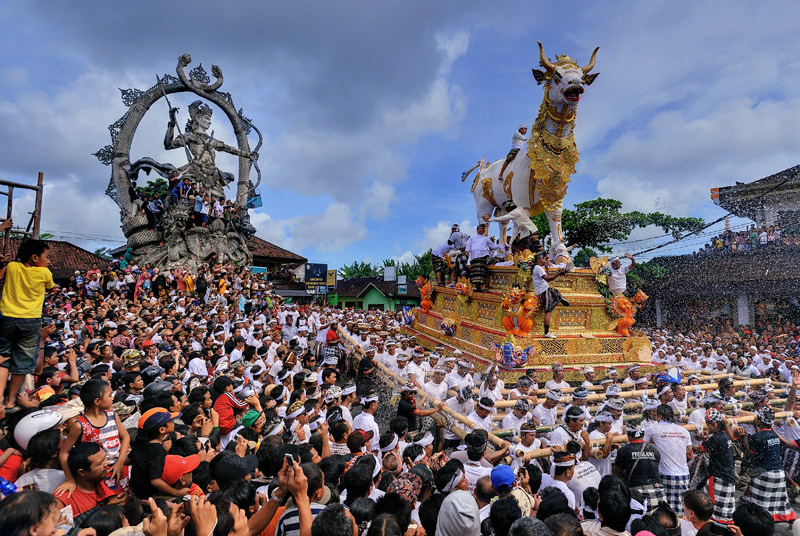Ngaben, a traditional Balinese Hindu cremation ritual, has been trending in Nigeria recently on platforms like X (formerly Twitter) and Facebook. It’s unclear why this specific topic gained traction in Nigeria, but it might be related to cultural discussions or specific events. As of early September 2024, #NGABEN has been trending alongside other global and local topics such as sports and entertainment. The trend was noted to be active for over 22 hours, reflecting significant interest.
Ngaben is a traditional Balinese Hindu cremation ceremony, which plays a vital role in their spiritual beliefs and practices surrounding death. The ceremony is a symbolic journey where the soul of the deceased is released and sent back to the spirit world to achieve moksha (liberation from the cycle of reincarnation).
Key Elements of Ngaben are preparation, procession, cremation and post-cremation. By the preparation, the body of the deceased is placed in a temporary coffin or ceremonial structure (often a tower or animal-shaped sarcophagus like a bull or lion). While the family and the community work together to prepare for the ceremony, gathering offerings, materials, and decorations.
A procession is held where the decorated tower or sarcophagus is carried to the cremation site. The route taken is often winding, symbolizing confusion to prevent the spirit from returning to the world of the living.
Once at the cremation site, prayers are offered by a priest, and the body is placed in the pyre or ceremonial sarcophagus, which is then set on fire. The fire symbolizes the purification of the soul and helps release it from the physical body.
For the post-cremation, the ashes are collected and often scattered into the sea or a sacred river, symbolizing the final release of the soul. Various rituals may follow to ensure the spirit transitions peacefully.
Spiritual significance
The spiritual significance of Ngaben is that it’s seen as an important rite of passage for Balinese Hindus, reflecting their belief in the impermanence of life and the eternal nature of the soul. It helps the family come to terms with loss while honouring the deceased’s journey toward spiritual liberation.
The ceremony is often a large, colourful, and community-driven event, with a mix of solemnity and celebration, as death is viewed as a step toward spiritual freedom rather than an end.


